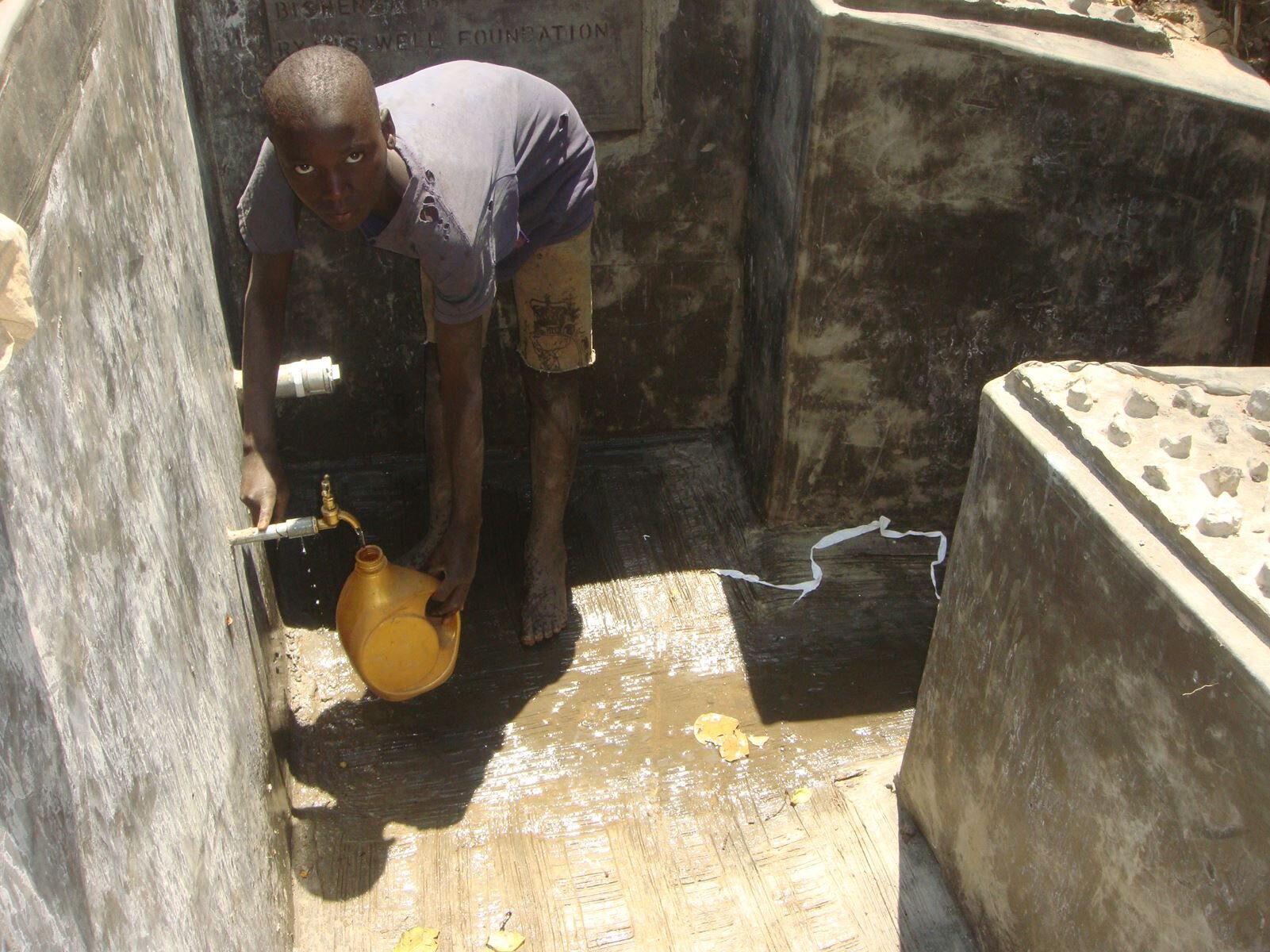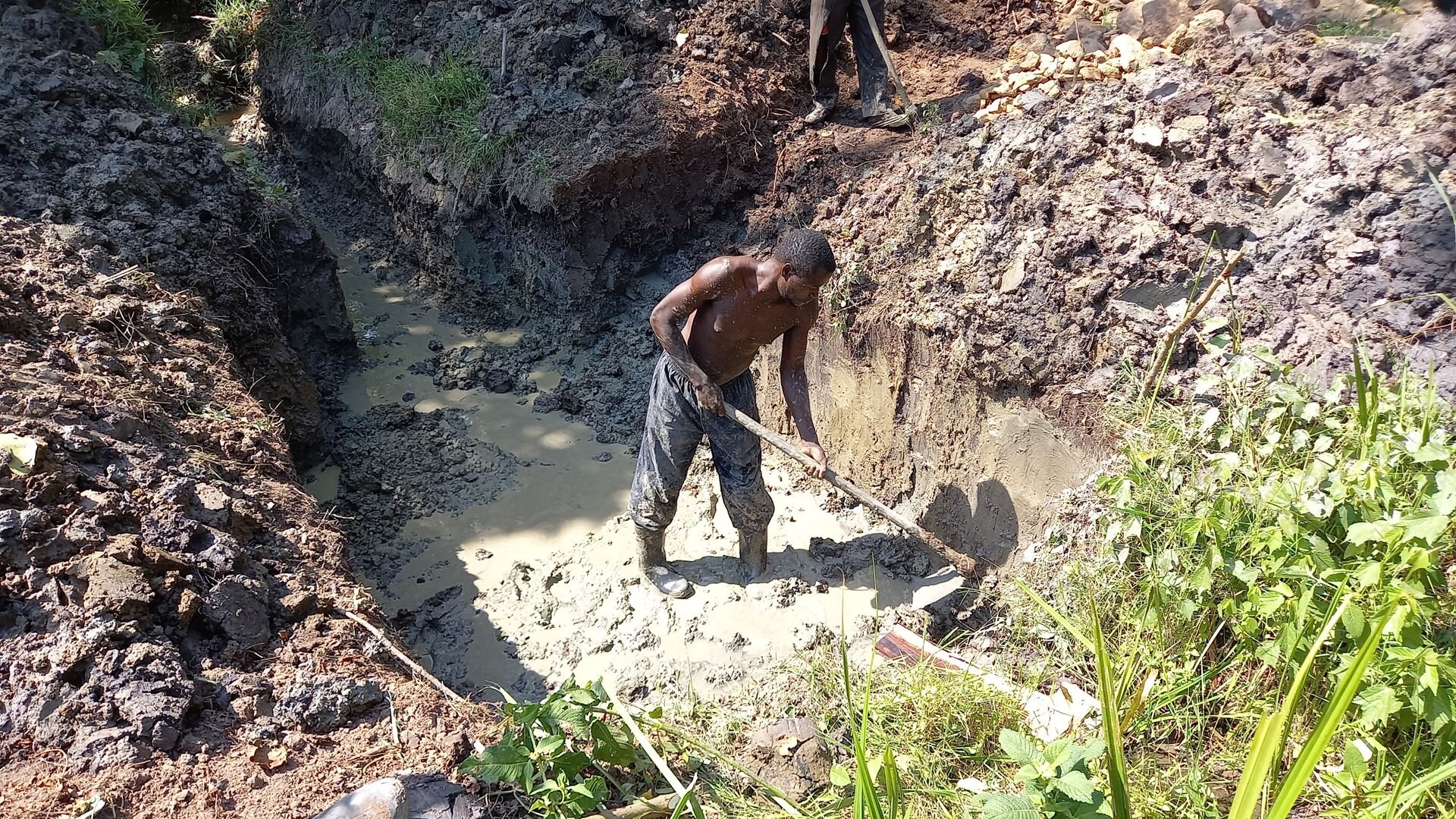
Bishenga Village
2021 Fundraising Goal: $3894.00
Community Connection
We are SO excited to announce that we are working together with the amazing Ryan’s Well Foundation on a special project: THE BISHENGA VILLAGE PROTECTED SPRING PROJECT!
Our fundraising goal is $3,894.00 CAD which will provide the Bishenga Village Community with a protected spring along with the associated material, labor, WASH training, and monitoring costs.
$1 from every assessment will go directly to our fundraising goal!
Arinaitwe Merab, a 37-year old woman, mother, and resident of Kajunju village; she is also a beneficiary of last year’s project work in Western Uganda.
“For a long time, my village has lacked clean and safe water. I walked miles to fetch clean water from the neighbouring water source, which was very tiresome, and time-consuming for me and for my children. I'm now guaranteed that I can always access clean and safe water without the many risks involved in using contaminated water. I wish to see my children grow while they are healthy and free from any diseases that would hinder them from attaining a better life."
Rukungiri Women’s Integrated Development Foundation (RWIDF)
The Ryan’s Well Foundation work with a local partner, referred to as the 'Rukungiri Women's Integrated Development Foundation' (RWIDF). Together they provide communities in Western Uganda with Protected Springs!

Project: Protected Springs
It’s more than clean water; it’s opportunity!
Bishenga Village is on the Ryan’s Well Foundation’s short list of communities that will benefit from the Protected Spring Project this year! The Village is located in the Ntungamo District of Western Uganda. The total population of this village is only 136 people, with a total of 17 households.
Uganda consists of generally flat lands, making it optimal for agricultural use, however, there is a rim of mountains in the southwest of the country. Habitants of rural villages are often required to travel long distances to collect water for use at school and home.
This burden of collecting water disproportionality falls on women and children, especially girls, who typically spend 1-2 hours per day collecting contaminated water from surface ponds and springs. For many schools in Western Uganda, children take alternate morning classes off to collect water for the school, thus missing 25% of their education annually.
As a result, many students fall behind in their studies, and are not provided with equal learning opportunities. Apart from the time spent fetching water in Uganda, the water collected often carries water-borne diseases, including cholera, dysentery, and diarrhoea (the leading cause of death in children under five years old in Sub-Saharan Africa).
The Ryan’s Well Foundation have worked in this region since 2002 with a local partner, referred to as the 'Rukungiri Women's Integrated Development Foundation' (RWIDF). Unlike some of their other local partners, the RWIDF team are unable to drill wells for communities in this area because of the very mountainous terrain (the drilling equipment cannot make it to the drill sites).






Bishenga Update!
Construction began on June 22nd! This project has relied on a lot of community participation within the village. Materials to build the protected spring were dropped off by truck as close to the village as possible but due to the mountainous terrain, community members had to help carry everything down from the road to the actual work site.
Once the materials were at the site, community members helped the RWIDF team to excavate the area. This meant digging a few feet deep into clay-like matter until the natural flowing stream could be harvested with PVC piping and then allowing the local artisans to begin the cement work. The spring will be considered 'protected' after the stream successfully travels through a natural filtration system and into a cement storage tank for the community to access via a tap.
The entire process will take a few weeks. After the cement has completely dried, the RWIDF team will return to help organize a water management committee, as well as to facilitate WASH training sessions for all those benefitting from Bishenga's new water source. Lessons included water transportation and storage techniques, as well as education on proper sanitation and hygiene practices.
RWIDF report that the community residing in Bishenga village have “been more collaborative and eager than others to ensure that the water source in their community is kept safe.” This is critically important for the longevity of our projects, as it is an earlier indicator that the community will take pride in maintaining and managing their water source for generations to come.
The Bishenga project has experienced challenges imposed by a local 42-day lockdown in Uganda last month to ease COVID-19 cases, the topography of some of the sites was a barrier for the team to deliver materials on schedule and things just took longer due to materials needing to be hand delivered to site. With saying all of that we are excited to report that the Protected Spring is in place and the residents of Bishenga Village are now, as of August 20th, enjoying clean water!
Atuheire Edia; she is 48 years-old, married, has 11 children, and is 1 of 136 people accessing the new protected spring in Bishenga Village.
She told RWIDF that she had never dreamed of having clean water in her village. She has lived in the village for over 40 years, but she has never seen any clean water project brought to her village. She said: “we have always fetched our water from the pond in the valley, which is usually filled with algae.” She expressed much appreciation towards the donors, and thanked them for their generosity. She told RWIDF: “I am happy that my children can now enjoy and use clean water because I believe this will help them to grow and thrive”.









